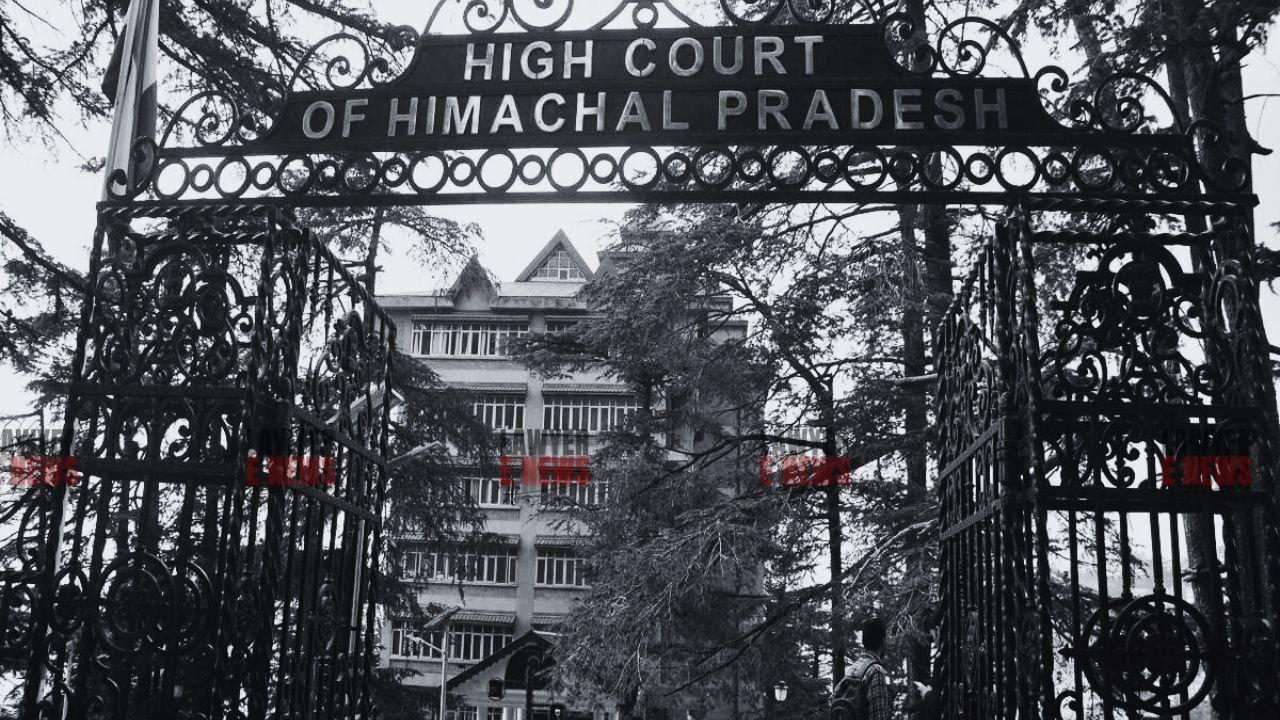-
by Admin
16 February 2026 1:47 PM



Himachal Pradesh High Court dismissed the State's appeal against the acquittal of Varinder Soran, charged under Sections 376 (rape), 377 (carnal intercourse), 506 (criminal intimidation), and 417 (cheating) of the Indian Penal Code (IPC). The bench comprising Justice Tarlok Singh Chauhan and Justice Rakesh Kainthla underscored that appellate courts must respect trial court findings unless they are patently perverse or based on misreading of evidence.
The prosecutrix alleged that the respondent lured her by claiming her husband was intoxicated and lying near the railway station. Under this pretext, the respondent took her to a secluded area and allegedly committed carnal intercourse with her forcibly, threatening to kill her if she raised an alarm. After considering the evidence, the trial court acquitted the respondent, citing inconsistencies in the prosecution's case, unexplained delays in lodging the FIR, and lack of corroborative medical evidence. Aggrieved, the State filed an appeal.
The court referred to precedents like Rajesh Prasad v. State of Bihar (2022) and H.D. Sundara v. State of Karnataka (2023), emphasizing that appeals against acquittals require deference to trial court findings. The High Court reiterated the principle of “double presumption of innocence” and held that an acquittal could only be overturned if the findings were manifestly erroneous or not supported by evidence.
The prosecutrix filed the FIR four days after the alleged incident, despite opportunities to report the crime earlier. The High Court observed that this unexplained delay raised significant doubts about the credibility of her testimony and motives.
The prosecutrix’s medical examination, conducted four days after the alleged incident, did not reveal any injuries or evidence of carnal intercourse. Though semen was detected on her clothing, its origin was not established. The medical examination of the respondent also showed no injuries, which contradicted the prosecutrix’s account of forcible intercourse.
The prosecutrix’s husband admitted she had not disclosed the incident immediately. The lack of timely disclosure and the absence of corroborative evidence from other witnesses weakened the prosecution’s case further.
The High Court concluded that the trial court's findings were based on a proper and thorough evaluation of the evidence, including medical and testimonial discrepancies. The unexplained delay in lodging the FIR and the absence of injuries or corroborative evidence further undermined the prosecution's narrative. The court reiterated that appellate interference was unwarranted unless the trial court's view was patently perverse, which was not the case here. The principles governing appeals against acquittals required respect for the trial court's perspective, particularly when its conclusions were supported by evidence. Thus, the appeal lacked merit and was dismissed.
Date of Decision: January 3, 2025
